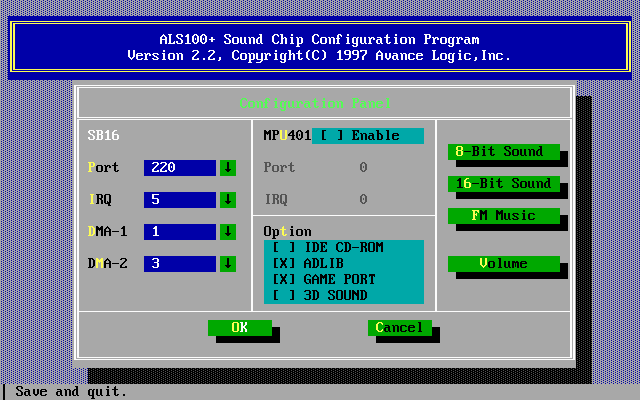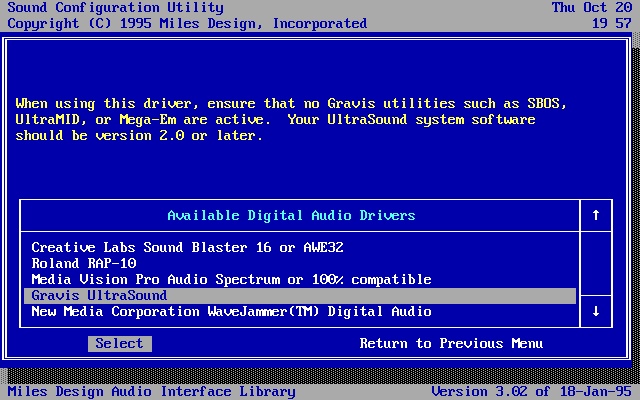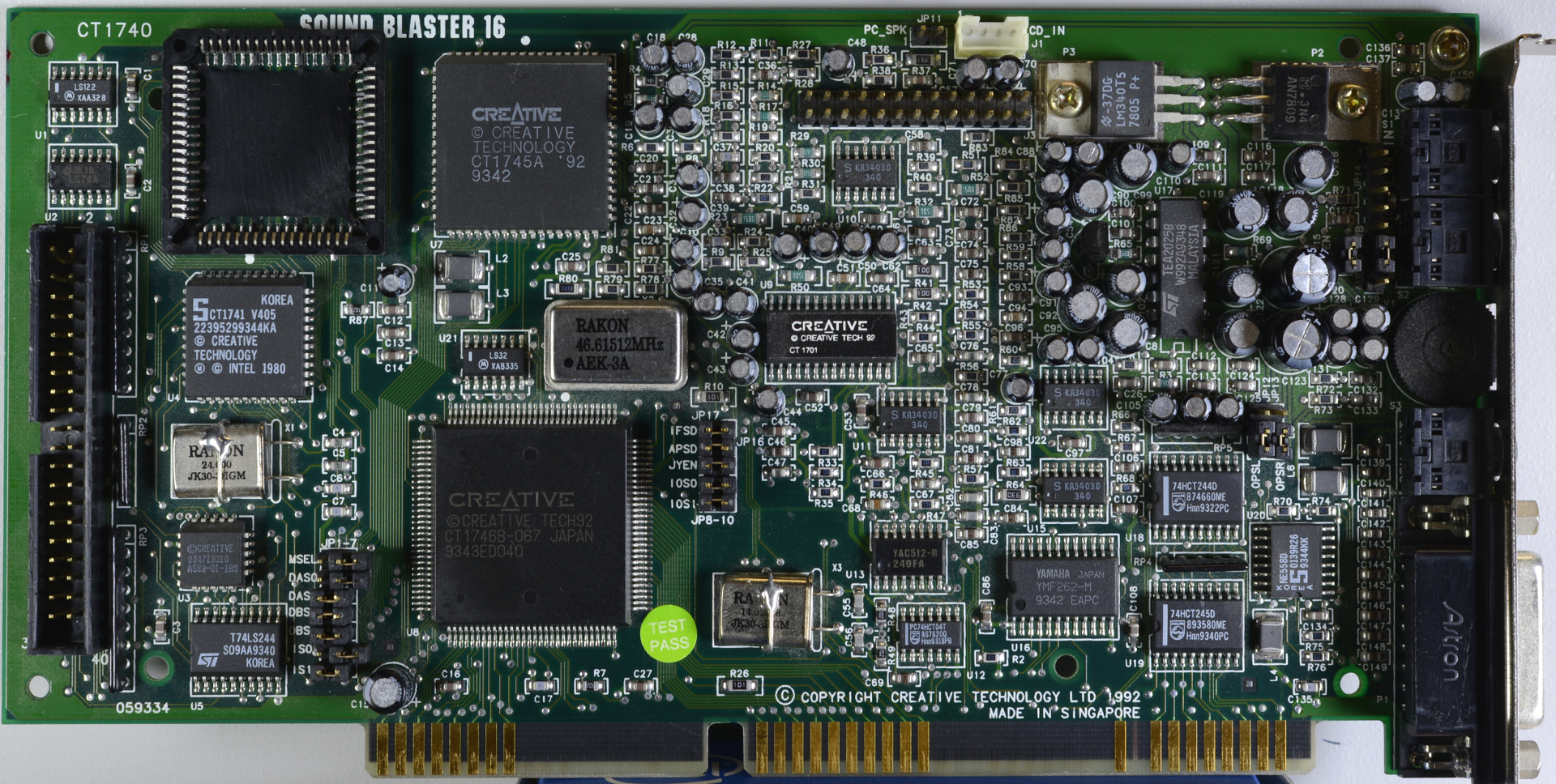
- Sound blaster software dos how to#
- Sound blaster software dos drivers#
- Sound blaster software dos code#
- Sound blaster software dos windows#
So now the card is recognizing, everything is running smoothly, the only thing left is.
Sound blaster software dos windows#
I don't know why windows is picking 7 and dos is picking 5, but I'm assuming dos is running off of the SET BLASTER= I5 variable and windows is going off of something else entirely. When I tell windows to detect the sound card, it goes to irq 7. Before, it wouldn't detect anything at all, so we're definitely making progress. When I tell it to detect sound, it detects the SB16, detects port 220, irq 5, and dma 1, but when it tries to play sound, it goes through the motions, but nothing comes out of the speakers. I'm using a sound utility that comes with TIE Fighter to test the sound. Ok, I've installed the driver, and now (thank god) the card is recognized in dos. I suspect config.sys and autoexec.bat are completely screwed. Upon further inspection, it would appear that my cd drive isn't loading in dos either. " " is not a thorough resource, and leaves a lot of commands and parameters out.
Sound blaster software dos how to#
I need a page that covers autoexec.bat *thoroughly*, and I need to figure out how to edit autoexec.bat and config.sys properly to get sound playing. Nothing I've tried so far has gotten any sound to come out at all. I've played around with autoexec.bat extensively, but I can't seem to find any resources or people that are intimate with its workings.
Sound blaster software dos drivers#
I suspect I need to load dos drivers for the soundcard, since thusfar, no sound at all is coming out of the speakers in dos. However, I'll be playing a bunch of games in dos, and I need to figure out how to get sound working. I've installed my ct4740 pci sound blaster 16 in my windows 98 machine, installed the drivers, and it works perfectly under the 98 interface.
Sound blaster software dos code#
To download the C source code (4k), click here.Down to business. To download the Pascal source code (4k), click here. Note: A small bug that caused problems when recording more than one wave file ofter another has been fixed. This will record standard 11025Hz, mono, 8bit, uncompressed. To download the C source code (35k), click here. To download the Pascal source code (35k), click here. This will play standard 8 bit mono uncompressed. A small error in the header definition prevented some waves from playing. Note: This has been expanded to support other IRQ and DMA settings. This will play any standard 8/16 bit uncompressed. To download the C source code (9k), click here. To download the Pascal source code (9k), click here. If you don't need to mix multiple samples, try this. Source code that plays a wave file through the Sound Blaster. Playing a sampled sound through Sound Blaster DMA To download the C source code (2k), click here. To download the Pascal source code (2k), click here. Note: If you use MicroSoft C, please read the section "Delay routine" above. Source code to play music using an FM sound cards such as the AdLib and SoundBlaster cards. To download the editor (10k), click here. Don't forget to hit F2 to save your changes! To use the editor, just unzip the file into the same directory where you will use the routines. Be warned though: you need some good knowledge of how the sound card produces its sound. If you think you can improve upong the instruments, you can use this tool. That is because I don't know the instrument definitions Windows uses. Some people have complained that the MIDI's don't sound the same as they do in Windows. To download the DJGPP/C(++) source code (40k), click here. To download the Pascal source code (40k), click here. Note: The routines have been updated to include a volume control. Source code to play MIDI music using either an FM sound card such as the AdLib and SoundBlaster cards or a General MIDI (GM) device, such as the Roland cards or the Gravis UltraSound using MegaEM. To download the C source code (3k), click here. Source code to play an audio CD using MSCDEX.

Playing Audio CDs through a CD-ROM player To download the DJGPP source code (43k), click here. To download the C(++) source code (43k), click here. To download the Pascal source code (43k), click here. Note: This won't work on the original Sound Blaster version 1.0 as it doesn't support auto-init DMA at all.

Source code to mix wave files using the Sound Blaster's auto-init DMA facility. Mixing sound samples through Sound Blaster DMA To download the C(++) source code (3k), click here. To download the Pascal source code (3k), click here. Note: This has been expanded to detect the 16bit DMA channel on SB16 and above. Source code to detect the base port, DMA channel and IRQ setting of the Sound Blaster family.

To download the text file (4k), click here. Many people have requested a list of the commands for the DSP chip on the Sound Blaster, so here it is. List of DSP commands for the Sound Blaster


 0 kommentar(er)
0 kommentar(er)
